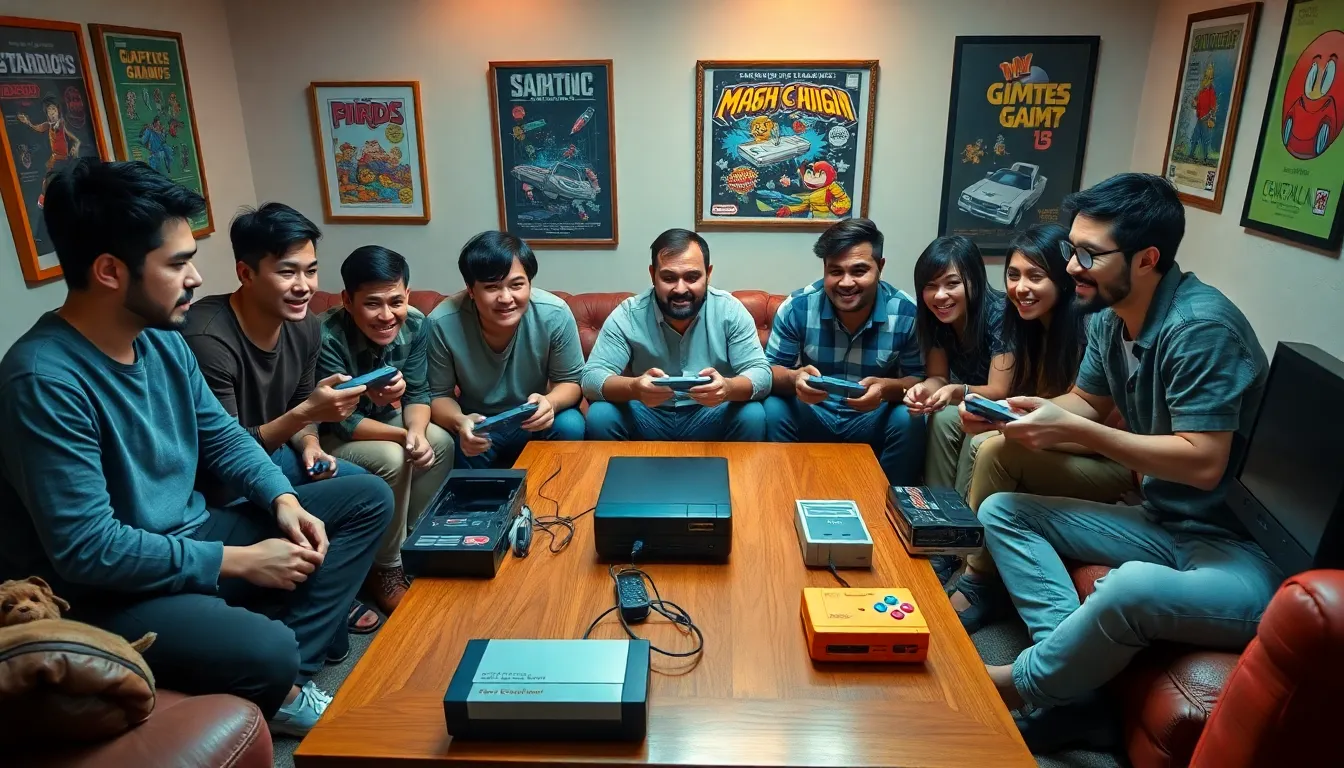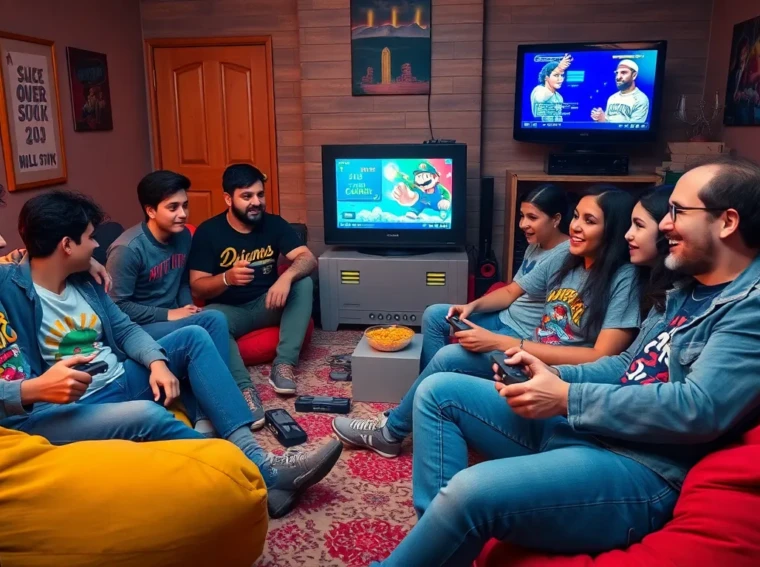Remember those days when gaming meant huddling around a console, battle snacks at the ready, and high-stakes competition fueled by nothing more than a little friendly rivalry? Old school gamers laugh in the face of online matchmaking, recalling epic score battles on pixelated screens. They’ve witnessed gaming evolve from a solo pastime into a connected global landscape, but one thing remains constant: the passion. Buckle up as we jump into the vibrant world of old school gaming, and let’s raise a controller to the past.
old school gamerawr

Defining Old School Gaming
Old school gaming refers to the era of video games that thrived from the late 70s through the early 90s. This golden age brought memorable characters, eye-popping graphics (for its time), and gameplay mechanics that have influenced generations. Old school gamers cherish the simpler times when mastering a game often required dedication, creativity, and, let’s be real, a bit of good fortune.
Key Characteristics of Old School Gamers
What sets old school gamers apart? First off, it’s their relentless dedication. Many have spent hours perfecting their skills on titles from Mario to Tetris. They appreciate pixel art, chiptunes, and the feeling of tactile buttons. They know the joys of blowing into a cartridge to get it working, because what’s nostalgia without a little trouble? Old school gamers keep the spirit alive with their respect for gaming history and a deep understanding of how far the industry has come.
Nostalgic Games That Shaped a Generation
Iconic Consoles and Their Impact
Consoles like the Atari 2600, NES, and Sega Genesis weren’t just machines: they were gateways to new worlds. Each console not only introduced groundbreaking titles but also brought families together around the TV. Who could forget the thrilling battles of Street Fighter II or the cheeky adventures of Sonic? These consoles set the groundwork for modern gaming, laying down rules that developers still follow today.
Classic PC Games to Remember
And let’s not overlook PC gaming. Titles like Doom, Wolfenstein 3D, and Command & Conquer revolutionized how we viewed games. They weren’t just entertainment: they were social experiences. These games often introduced us to multiplayer functionalities that would eventually evolve into the complex online systems seen today. Classic titles rang true with immersive storytelling and ground-breaking gameplay, a hallmark of a solid game.
The Rise of Competitive Gaming
LAN Parties: The Birth of Multiplayer
Nothing captured the joy and camaraderie of gaming quite like LAN (Local Area Network) parties. Gamers gathered in basements, attics, and living rooms, hooking up computers and consoles to battle it out for bragging rights and glory. It was a real-life meet-up before the term ‘streaming’ became a thing. Games like Quake and StarCraft turned casual gamers into fierce competitors, promoting teamwork and tactical skills.
Tournaments and the Gaming Community
With the advent of tournaments, gaming morphed into a fierce competitive landscape. Events like the World Series of Video Games and the early Electronic Sports World Cup drew players from various backgrounds to compete for thrilling prizes and eternal glory. These tournaments fostered a sense of community, turning strangers into friends built on shared interests.
Why Old School Gamers Still Matter Today
Influence on Modern Gaming Trends
Old school gamers have laid the groundwork for contemporary gaming trends. Many elements we see now, such as downloadable content, mobile gaming, and microtransactions, can trace their roots back to pioneering old school titles. Developers, in their quest for innovation, often find inspiration in the mechanics, stories, and art styles that shaped the earlier days of gaming.
The Role of Community and Connection
While gaming communities have shifted online, the essence of connection remains. Old school gamers foster bonds over shared experiences, often reminiscing about favorite titles and hardware. Their stories can ignite a sense of nostalgia in newer players, serving as a wonderful bridge between generations. These irreplaceable communities create an environment where everyone, regardless of skill level, can find a home.
